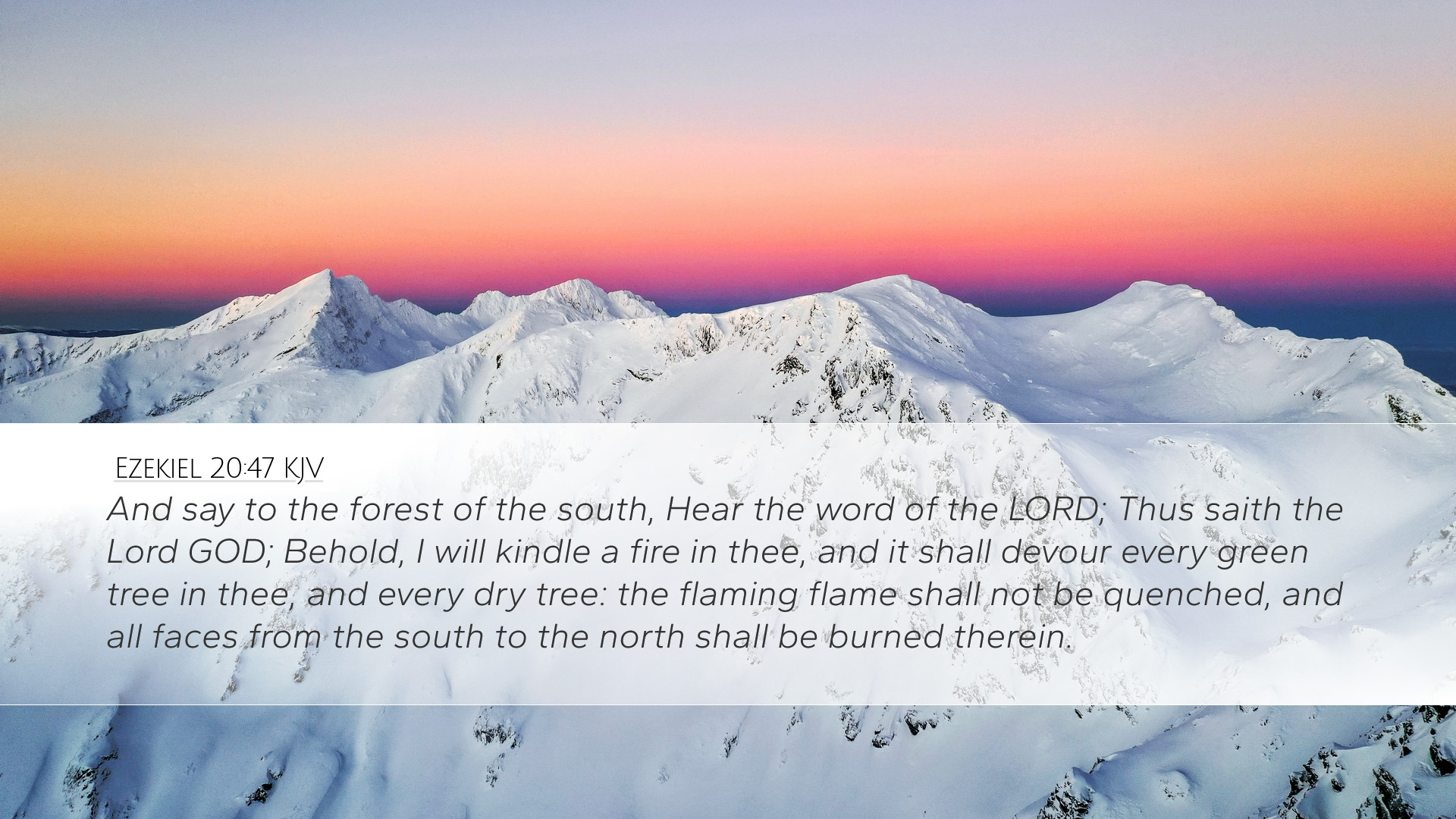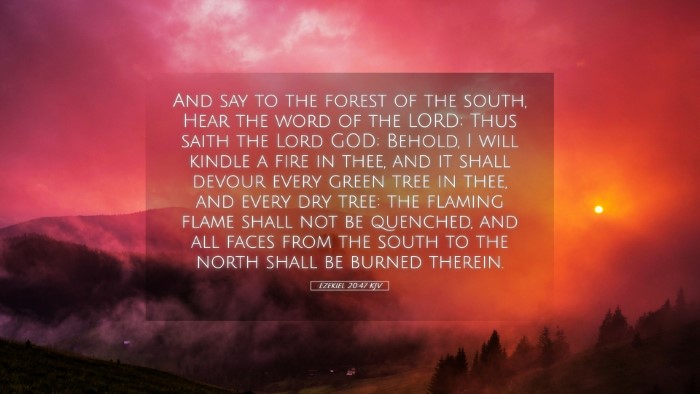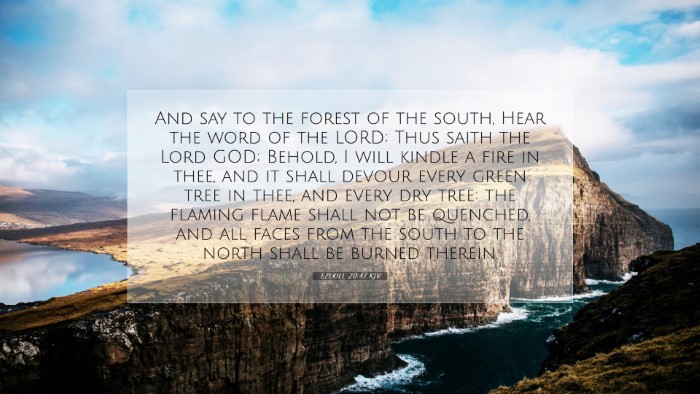Ezekiel 20:47 - A Comprehensive Commentary
Bible Verse: "And say to the forest of the south, Hear the word of the Lord; Thus says the Lord God: Behold, I will kindle a fire in you, and it shall devour every green tree in you, and every dry tree; the blazing flame shall not be quenched, and all faces from the south to the north shall be burned by it." (Ezekiel 20:47, ESV)
Contextual Background
The prophet Ezekiel, a priest and prophet, wrote during a time of significant crisis for Israel, particularly during the Babylonian exile. The themes present in his writings often reflect God's judgment, the need for repentance, and the ultimate hope of restoration. Ezekiel 20 encompasses the historical recounting of Israel's disobedience and God’s perpetual mercy, leading into this verse, which serves as a strong visual warning of impending judgment.
Verse Breakdown
This verse features several key themes and elements that warrant exploration:
- Divine Address: The directive to "say to the forest of the south" signifies not only a literal geographical location but also a metaphorical representation of the people of Israel. Here, “the forest” symbolizes the collective of the house of Israel, which is spiritually under God’s scrutiny.
- Call to Attention: The phrase "Hear the word of the Lord" highlights God's initiative in communication and His desire for His people to be attentive to His warnings. This call reflects God’s persistent outreach, even amidst Israel’s rebellion.
- Imagery of Fire: The use of fire here is multifaceted, conveying both destruction and purification. The fires set to consume “every green tree and every dry tree” signify the complete judgment against the ungodly, while also implying the devastation of those who were previously flourishing in sin.
Commentary Insights
Matthew Henry interprets this passage as a direct declaration of impending judgment upon Judah and Jerusalem. He emphasizes that the forest represents the people’s arrogance, much like a vast forest that appears strong and lively but is susceptible to destruction. Henry suggests that God’s judgment would come as an irresistible force, consuming what was not pleasing or compliant to His will.
Albert Barnes reflects on the theological implications of the fire as it pertains to the holiness and justice of God. He indicates that the metaphor of fire serves both as a deterrent against sin and an instrument for judgment. Barnes elucidates that the imagery reveals God’s absolute sovereignty over creation and His ability to enact judgment wherever necessary, making it imperative for individuals to heed the warnings He gives.
Adam Clarke focuses on the geographical significance of the “forest of the south,” possibly alluding to the southern kingdom of Judah, which was synonymous with spiritual rebellion and national disobedience. Clarke elucidates that the fire’s consuming nature is representative of both temporal destruction and the eschatological consequences for those who reject divine instruction. He notes that this passage extends a clear admonition for repentance before calamity strikes.
Theological Implications
This verse serves as a stark reminder of God’s righteous expectation for His people. The multifaceted nature of fire—symbolizing both destruction and purification—reminds readers that God's judgments are not arbitrary but are embedded in the moral fabric of His creation. As pastors, students, theologians, and scholars reflect on this instructive passage, several theological themes emerge:
- Judgment and Mercy: The juxtaposition of God’s judgment alongside His mercy is a recurrent theme in Scripture. This passage admonishes followers to remember that God is just and will hold His people accountable for their actions.
- Call to Repentance: The directive to hear God’s word emphasizes the necessity of an ear tuned to divine wisdom, inviting individuals towards repentance and away from destruction.
- God’s Sovereignty: The comprehensive control God exerts over the natural order indicates His unparalleled authority, implying that earthly powers are subject to His will.
Practical Applications
In light of the insights from Ezekiel 20:47, several practical applications emerge for contemporary believers:
- Listening to Divine Warnings: Believers should cultivate a sensitivity to the voice of God, actively seeking to align their lives with His instructions and warnings.
- Recognizing the Reality of Judgment: Pastors and leaders can illuminate the reality of divine judgment as an exhortation to righteousness. Understanding the seriousness of sin strengthens the call for holiness within the community.
- Engaging in Spiritual Reflection: This text serves as a devotional prompt for self-examination and repentance, encouraging the church to engage collaboratively in seeking God’s heart.
Conclusion
Ezekiel 20:47 encapsulates God’s ardent call to His people, urging them to recognize the gravity of their spiritual state. Through the metaphor of fire, this verse stands as an enduring testament to God’s divine justice and His deep desire for the repentance of Israel. As theologians and pastors reflect on its profound truth, they are challenged to communicate this message with love and urgency, reinforcing that divine mercy is always available to those who genuinely turn back to God.


